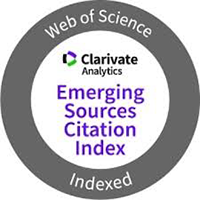Social values and physical activity: the evolution from gymnastics to sport in industrial modernity
Abstract
Social values are an essential feature for the historic analysis of physical activity and sport. The change in the value system produced by the transit from an estate-based towards a class-based society encouraged the practice of physical exercise and sport within a frame of a new conception of the body and social discipline. Traditional society had its major pattern in religion and its age-old principles on body movement as a matter subject to moral discussion. With the new society arising from the Industrial Revolution a new concept of the body is created as an educational object for its labour aim. Firstly, gymnastics comes up as a tool for collective instruction in the new discipline of ruled movement of the body. Afterwards, it was English sports, based on team strategies and rule-based play that become established. In both cases, gymnastics and sport derive from a new core of values in which competition, joint effort and sense of surmounting are the dominant references. Such values are, likewise, connected to the nationalist spirit emerging in the 19th century. Thus, the birth of nation-states in Europe runs parallel to industrial economy and to a new body conception which evolves from gymnastics to sport. In this article we analyze the case of modernization of Spain, showing some illustrative examples of the change in the values concerned with physical activity carried out during the passage from the 19th to the 20th century.
Downloads
References
- BARBERO, J. I. (1993): “Introducción”, en Brohm, J.; Bourdieu, P.; Dunning, E; Hargreaves, J.; Todd, T.; Young, K., Materiales de sociología del deporte. La Piqueta. Madrid.
- BERLIN, I. (2000): Las raíces del romanticismo. Taurus, Madrid.
- BLANCHARD, K.; CHESKA, A. (1986): Antropología del deporte. Barcelona, Bellaterra.
- BURGENER, L. (1973): L'éducation corporelle selon Rousseau et Pestalozzi. Librairie philosophique J. Vrin, Paris.
- DUMAZEDIER, J. (1971): “Realidades de ocio e ideologías”, en Dumazedier et al. Ocio y sociedad de clases. Fontanella, Barcelona
- DUNNING , E. (1990) ): “Sociological reflections on sports violence and civilisation”, en International Review for the Sociology of Sport, Volume 2, Número 1, pp. 65-81.
- ELIAS, N.; DUNNING, E. (1992). Deporte y ocio en los procesos de civilización. México: FCE.
- HARGREAVES, J. (2000): Freedom for Catalonia? Catalan nationalism, spanish identity and the Barcelona Olympic Games. Cambrigde University Press, Cambrigde.
- HOLT, R. (2002): “El deporte durante el periodo de entreguerras y las relaciones internacionales: algunas conclusiones”, en González Aja, T. (ed.): Sport y autoritarismos: la utilización del deporte en el comunismo y el fascismo. Alianza Editorial, Madrid.
- JOVELLANOS, M. G. (1986): Espectáculos y diversiones públicas. Cátedra, Madrid.
- LAFARGUE, P. (1974): El derecho a la pereza. Fundamentos, Madrid.
- LÓPEZ SERRA, F. (1998): Historia de la Educación Física de 1876 a 1898: la Institución Libre de Enseñanza. Gymnos, Madrid.
- MOYA, C. (1977): De la ciudad y de su razón. Cupsa. Madrid.
- PESTALOZZI, J. R. (1986): Cómo Gertrudis enseña a sus hijos; Cartas sobre la educación de los niños; Libros de educación elemental. Porrúa, México.
- RODRÍGUEZ, J. (1942): Historia de la Educación Física. Comisión Nacional de Educación Física, Montevideo.
- ROUSSEAU, J. J. (1969): Oeuvres complètes. Gallimard, Paris.
- SHAW, D. (1987): Fútbol y franquismo. Alianza, Madrid.
- SHEARD, K.; DUNNING, E. (1979): “Rugby, ¿un reservado para hombres?”, en Lüschen, G.; Weis, Sociología del deporte. Miñón, Valladolid.
- WILLIAMS, R. (1979): “Change and stability in values and systems. A sociological perspective”, en Rockeach, M Understanding human values, individual and societies. The Free Press, Nueva York.
Downloads
Published
Issue
Section
License
Authors who submit to this journal agree to the following terms:
- Author(s) keep copyright and guarantee to the journal the right to be the first publication of the work as licensed under Creative Commons Attribution-Noncommercial-ShareAlike 4.0 International as initial publication in this journal.
- Author(s) can establish additional agreements for non-exclusive distribution of the version of the work published in the journal (for example, to an institutional archives or to publish it in a book), with an acknowledgment of its initial publication in this journal.
- It is allowed and authors are encouraged to disseminate their work electronically (e.g, in institutional open archives or on their own website) before and during the submission process, as it can lead to productive exchanges, as well as a citation earlier and more of published work (See the Effect of Open Access).












